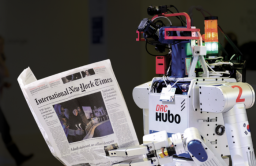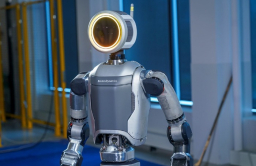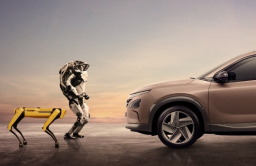-
KOSPI 2812.05 +41.21 +1.49%
-
KOSDAQ 756.23 +6.02 +0.80%
-
KOSPI200 376.54 +6.64 +1.80%
-
USD/KRW 1373 3.00 -0.22%
LG Electronics bets big on humanoid robots: CEO Cho
Korean Innovators at CES 2025
LG Electronics bets big on humanoid robots: CEO Cho
The South Korean electronics giant is developing humanoid robots based on its AI agent Q9 technologies
By
Jan 09, 2025 (Gmt+09:00)
3
Min read
News+
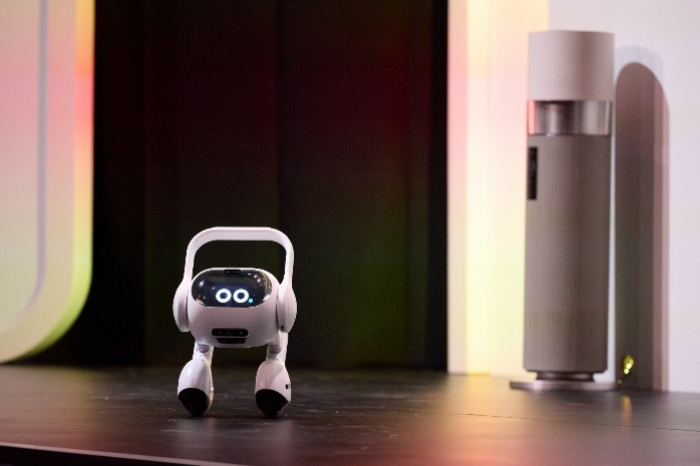
LAS VEGAS – South Korea’s top home appliance maker LG Electronics Inc. has thrown down the gauntlet to frontrunners in the AI robot race by developing its original humanoid robots.
“Robots are certainly the future of mankind,” LG Electronics Chief Executive Cho Joo-wan said on Wednesday at a press event on the sidelines of CES 2025 in Las Vegas. “(LG Electronics) is developing humanoid robots for home, at the center of the robot race.”
LG Electronics has been in the robotics business for some, offering service robots such as LG CLOi ServeBot and GuideBot, which are mainly wheeled robots with limited movement and dexterity.
With the latest announcement, LG Electronics is set to take on its cross-town rivals such as Hyundai Motor Group and Samsung Electronics Co., which have injected massive investments in the development of humanoid robots, bipedal AI robots modeled after the human form factor and designed to work alongside humans to augment productivity.
LG Electronics plans to roll out its AI agent, codenamed Q9, which will serve as the foundation model for its humanoid robot, later this year after beta testing in February and March.
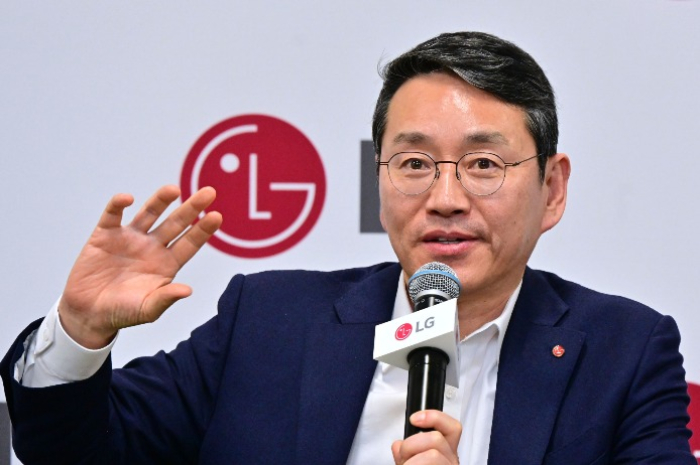
“The company is researching technologies essential in developing humanoids, such as hand gestures and gait, based on the cognitive and articulation technologies adopted in Q9,” explained Kim Byung-hoon, vice president and chief technology officer (CTO) of LG Electronics.
Earlier this week, the Korean electronics giant announced a strategic partnership with US tech giant Microsoft Corp. to combine their industry-leading technologies and lead artificial intelligence innovations.
The two companies said they would work together to develop and advance AI agents, including Q9, for use in various spaces covering homes, vehicles, hotels and offices under their partnership.
The global humanoid robot race has heated up lately, joined by global tech giants like Tesla Inc., which introduced the second generation of its humanoid robot, Optimus, last year with a plan to deploy them commercially this year.
Honda Motor Co. and Boston Dynamics owned by Hyundai Motor are other firms actively developing their own humanoid robots.
LG Electronics is considering offering AI agent Q9 as a subscription service or synching it with its AI smart home platform LG ThinQ when it is launched in September in Korea to allow more people to experience it.

AGGRESSIVE SUBSCRIPTION AND PLATFORM BUSINESS TARGETS
Cho also unveiled the company’s mid to long-term bid to foster the appliance subscription and platform businesses, its future growth engines.
It will bump up sales from the subscription business and platform business three-fold and five-fold, respectively, by 2030 to 10 trillion won ($6.8 billion) together.
In 2024, LG Electronics is estimated to have earned 2 trillion won in appliance subscription sales, up 75% from the year prior, and more than 1 trillion won in webOS-based ad and content sales.
“Care services, which are repair and parts replacement services, lie at the center of the subscription business,” said Cho, adding that the company will foster its appliance care service capabilities with the company’s about 5,000 care service providers.
The Korean appliance giant has been striving to transform into a platform-based tech giant under its Vision 2030 announced in July 2023.
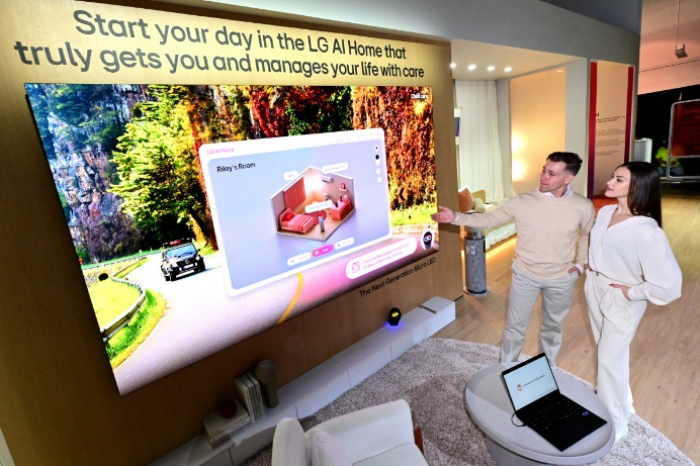
Regarding its initial public offering in India, Cho said the company will seek another leap as a national brand in India by going public in the world's most populous country. The IPO is expected to take place in April or May this year.
Late last year, the company announced plans to expand its appliance subscription service into new overseas markets, including India.
On Wednesday, LG Electronics flagged weaker-than-expected earnings for the fourth quarter ended in December 2024, with an operating profit of 146.1 billion won, down 54% from a year ago, on sales of 22.78 trillion won.
Its preliminary operating profit for 2024 stood at 3.43 trillion won, 6.1% lower than its 2023 profit despite its historic high sales of 87.74 trillion won, up 6.7% on-year.
Write to Eui-Myung Park at uimyung@hankyung.com
Sookyung Seo edited this article.
More To Read
-
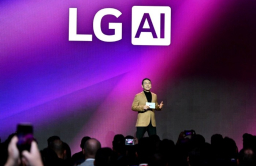 Korean Innovators at CES 2025LG Electronics, Microsoft sign strategic partnership on AI agents
Korean Innovators at CES 2025LG Electronics, Microsoft sign strategic partnership on AI agentsJan 07, 2025 (Gmt+09:00)
-
Dec 31, 2024 (Gmt+09:00)
-
Dec 09, 2024 (Gmt+09:00)
-
Oct 17, 2024 (Gmt+09:00)
-
Sep 29, 2024 (Gmt+09:00)
-
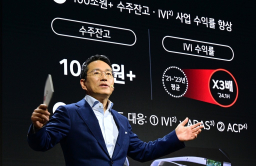 Corporate strategyLG to seek most of profit from new growth engines
Corporate strategyLG to seek most of profit from new growth enginesAug 21, 2024 (Gmt+09:00)
-
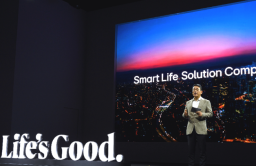 Corporate strategyLG Electronics aims to transform into platform-based tech firm by 2030
Corporate strategyLG Electronics aims to transform into platform-based tech firm by 2030Jul 12, 2023 (Gmt+09:00)
-
Nov 23, 2022 (Gmt+09:00)


